Roundtable on Money and Finance (Spring 2021): Finance Supports the Start of the 14th Five-Year Plan
2021-04-29 IMI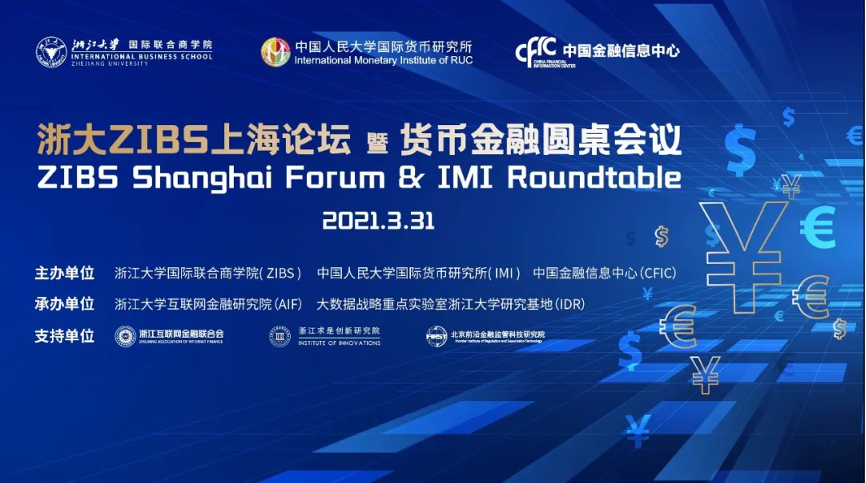
On March 31, the Roundtable on Money and Finance (Spring 2021) was successfully held in Shanghai. The conference was jointly organized by IMI and International Business School of Zhejiang University (ZIBS) and China Financial Information Centre (CFIC), and co-organized by the Academy of Internet Finance, Zhejiang University (AIF).The theme of this symposium is “Finance supports the start of the 14th Five-Year Plan”. It is the first time that the Roundtable on Money and Finance was held in the Yangtze River Delta.
The symposium was chaired by Ben Shenglin, Co-director of IMI and Dean of ZIBS and AIF. Opening remarks were delivered respectively by He Lianzhen, Secretary of the CPC Committee and Vice President of Zhejiang University, Cao Tong, Co-Chairman of Council of IMI and Chairman of Board at Hande Fintech Holding, and Ye Guobiao, Secretary of the CPC Committee of CFIC and Chairman of Board,CFIC and Shanghai Petroleum and Natural Gas Exchange.
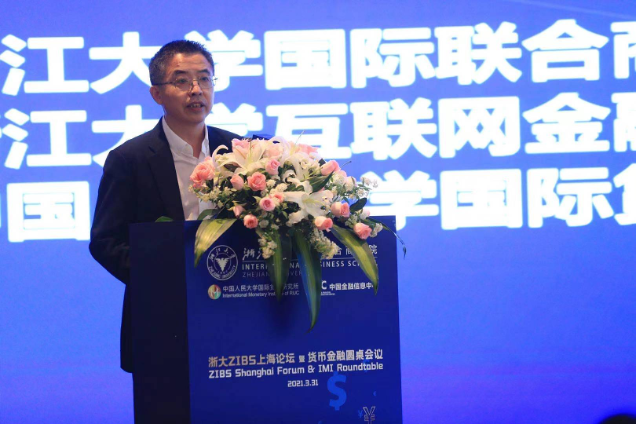
He Lianzhen delivered a speech on behalf of Zhejiang University. She mentioned that according to the Global FinTech Development Report2020 published by the research team from Zhejiang University, Shanghai leads the world in FinTech. Zhejiang University strives to build itself into a world-class university with its roots in China, and hence will deepen strategic cooperation with Shanghai for major opportunities. Aiming for better quality, higher excellence, more respect, and bigger dreams and guided by the 14th Five-Year Plan, Zhejiang University will take new measures and shoulder greater responsibilities in serving the country and fulfilling its mission.
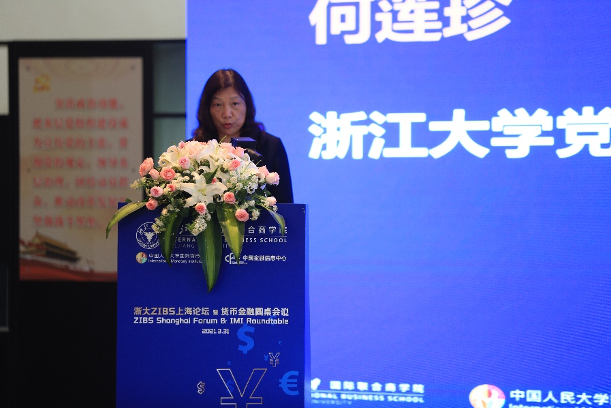
Cao Tong expressed a warm welcome and sincere gratitude on behalf of IMI to all the guests. He emphasized that only alertness to danger will ensure safety. We think highly of China’s effective response to the Covid-19 pandemic, but we should also be aware of the difficulties and challenges facing our economy. At the beginning of the 14th Five-Year Plan period, we should step up efforts to build a new “dual circulation” development paradigm, follow market principles and the rule of law and improve the modern financial system that is highly adaptive, competitive and inclusive. We should also build a new system for higher-level open finance, make good use of international financial resources to advance quality development and modernization in China, and provide high-level financial support for key areas of the new development paradigm. Mr. Cao hoped that the Roundtable on Money and Finance on the theme “Finance supports the start of the 14th Five-Year Plan” can provide insights into how to optimize China’s financial structure and offer suggestions for the formulation and implementation of China’s international financial strategies.
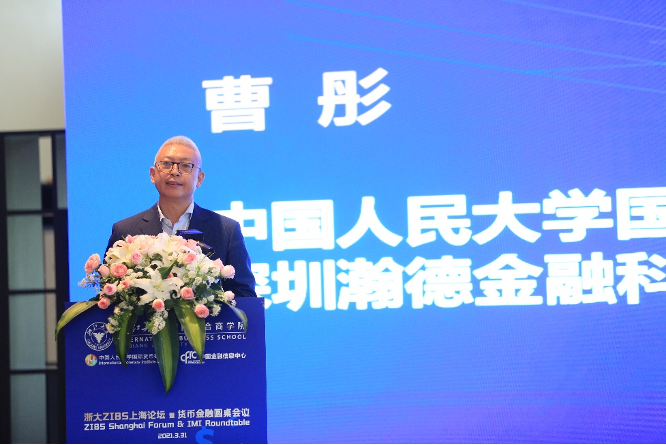
After the opening remarks, a ceremony was conducted to celebrate the first Roundtable on Money and Finance organized in the Yangtze River delta. All the attendees extended a rousing welcome and high expectations to it. Moreover, ZIBS’s Teaching and Practice Base in Shanghai was inaugurated and a ceremony was held to launch the new book, Prepare for potential problems in a VUCA world: Report on the Internationalizationof the Global Banking Industry 2020.
Afterwards, keynote speeches were separately delivered by Liu Jun, Member of IMI Academic Committee and President of Bank of Communications; Tu Guangshao, Former Vice-Mayor of Shanghai; Jiao Jinpu, Member of IMI Academic Committee and Chairman of Shanghai Gold Exchange; Guan Tao, Member of IMI Academic Committee and Global Chief Economist at BOC International; and Jin Yu, Member of IMI Academic Committee and Chairman of Board, Bank of Shanghai.
Liu Jun made a presentation titled “Banks, Banking, and Building a Multi-tiered Capital Market”. He analyzed the root and the current status of banks and the outlook for the banking industry in a new era. He pointed out that any e-commerce company that does not aspire to be a bank is not a good tech company, and that banks’ competitors may not be banks but rather tech companies and even a technology. The intangible economy is quickly rising, and technologies will reshape the industrial landscape. China’s financial sector has evolved from banks-driven into market-led, from indirect financing-dominated to a balance between indirect and direct financing. Currently China still lags far behind developed economies in terms of capital market development and the scale of direct financing, and therefore there is substantial room for future development. He contended that banks will build and participate in the capital market. Traditional banks served as financial intermediaries by receiving deposits and lending loans to companies while modern banks deeply participate in the capital market by managing deposits and integrating investment and lending.
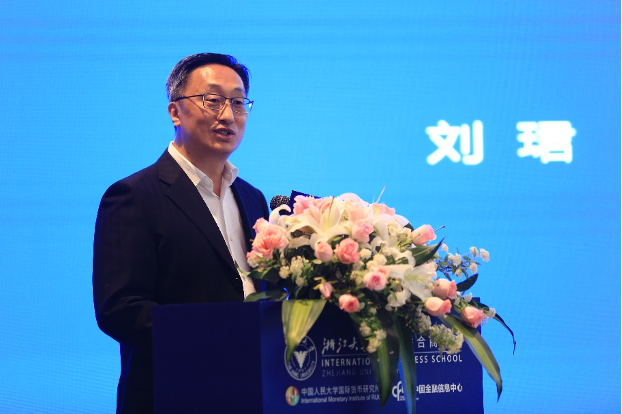
Tu Guangshao addressed the meeting on the topic of “New Development Stage and Financial Service Domains.” He noticed that social and economic development requires high attention on financial service domains, which demonstrate deepening functions of financial services and the result of financial reform, opening up and innovation. There are eight financial service domains, namely fintech, green finance, big data finance, inclusive finance, advanced manufacturing industry finance, cross-border finance, principal assets finance and pension finance. They’re the focus of financial support for the 14th Five-Year Plan. They bring about opportunities along with challenges. The government needs to build a cooperative environment for financial services to the real economy and social and economic growth with the drive of reform and opening up, through financial innovation. The financial institutions will be underpinned by better service capabilities with supporting measures. Thus, the eight domains of financial services will be intensified and improved.
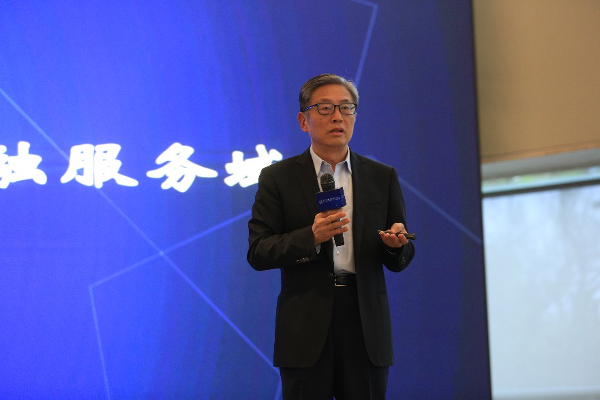
Jiao Jinpu delivered a speech of “Financial DevelopmentwithChinesecharacteristics.” From a data perspective, he shared his understanding of General Secretary Xi Jinping’ statements on financial sectors. He pointed out “two imbalances and two limitations” in domestic financial sectors. The first one is the deficient financial support for micro and small enterprises and private businesses, the other onelies in relatively low direct financing ratio in financing structure.The two limitations refer to the inadequate say of China in international financial system and the relatively weak leadership of local Party committee in local finance.
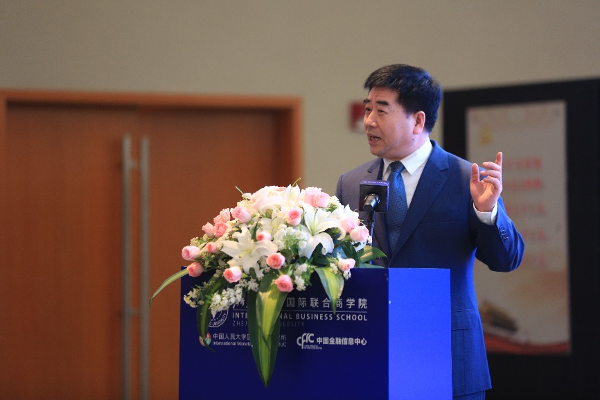
Guan Tao delivered a speech titled “Theoretical Issues in Internationalization of Currency.” He mentioned that the openness of financial services is only part of the story in financial openness. The key is opening the financial products and tools. The more open financial sectors also mean more difficult financial management and supervision and the difficulty will rise geometrically. It is an important lesson that immature financial openness often ends up with crisis. The procyclicality and overshoot of cross-border capital flows make it harder to match with reform and opening up. The arrangements concerned financial openness in the 14th Five-Year Plan are more prudent than market expectations, which shows sober and conservative estimate of the central government about domestic and international dynamics.
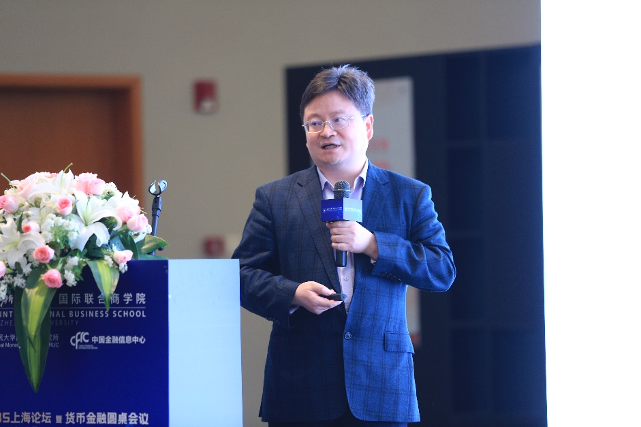
Jin Yu discussed liquidity management and constraints in the banking sector. He believed that there are three key points in supporting finance for the 14th Five-Year Plan. The first is to shakeoff the constrains from debt leverage and go beyond equity financing; the second is to turn more indirect financing from savings into direct financing of long-term investment; the third is to cut carbon dioxide emissions and build real green finance with Chinese characteristics.
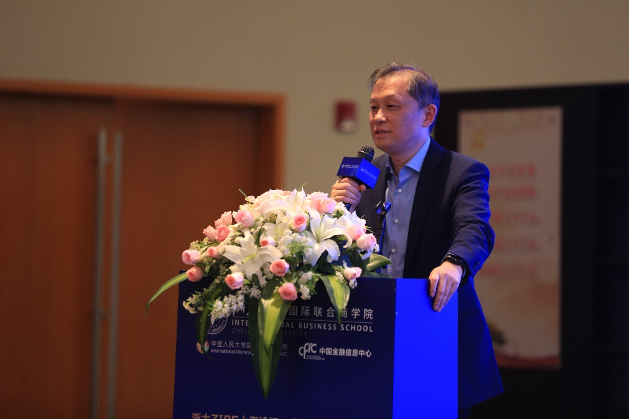
In the roundtable discussion, Zhao Xijun, Co-Dean, Academy of China Capital Market at Renmin University, Yang Zaiping, Secretary General, Asian Financial Cooperation Association and former Executive Vice President, China Banking Association, Ding Jianping, Vice President of SIIFC and Director of the Modern Finance Research Center, Shanghai University of Finance and Economics, Huang Jinlao, Chairman of Jiangsu Suning Bank Co., Ltd., Pei Yigen, former Vice President of Citibank (China) Co., Ltd., Chen Qiwei, Chairman of Asia Business Corporation and Director of Institute of Fintech Research, East China Normal University, Song Ke, Deputy Director of IMI and Associate Professor of Renmin University, and Wang Jian, Chief Analyst of Banking, Guosen Securities Economic Institute commented on the speeches above and shared their valuable insights into how “finance supports the start of the 14th Five-Year Plan” based on their own research.

